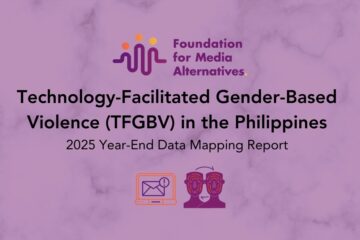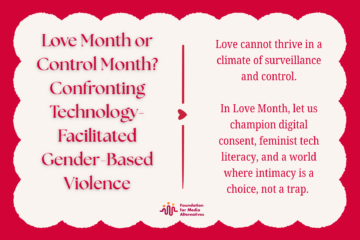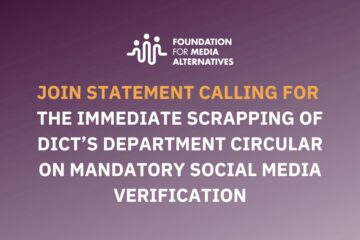When the noise makes you silent: Human rights defenders and freedom of expression
By JV Manglicmot
Last December 1 and 2, I, along with other staff members of Foundation for Media Alternatives (FMA) attended the FreeXP.con in the Hive Hotel in Quezon CIty. The FreeXP.con is a conference organized by HRonline to address the threats against freedom of expression that human rights defenders (HRDs) face.
What threats?
At a time where trolls and fake news plague the online realm — with many users, or bots, flinging insults and labels such as Dilawan, Bayaran, Dutertard — and many users sharing unverified and obviously false news, the internet, particularly social media, becomes toxic.
Toxic, in an inexplicable sense that mere presence in social media drains the life and sanity out of its readers. However, the arguable toxicity of social media is only a fraction of the overall threats HRDs face. The online realm has begun to act as a platform for online abuse, trolling, and hate speech geared specifically towards the HRDs. One can even say, that in social media, HRDs and human rights, in general, are vilified.
One can argue that freedom of speech is not at risk given its tumultuous display in social media. However, I learned that many, especially HRDs, are silenced by the noise. Trolls often resort to online harassment. Some even lead to doxxing as with the case of Jover Laurio of Pinoy Ako Blog.
Trolls further feast on fake news and preach them as the absolute truth, calling media as paid propagandists, and claiming social media as the only legitimate source of information.
Speaking of threats, it is only recently that I understood how libel and cyber libel have become a tool for silence. As I learned, libel is mostly used by powerful authoritative figures to silence those who speak against them. Whether it be backed up by facts, a documented piece can be considered libelous as long as malice is detected. HRDs and journalists often fall victim under this law.
Gender-based threats also proliferate in social media. Many women are feasted upon in online groups — such as the Hokage Facebook group. Images of women, of different ages, are retrieved by member-individuals of such pages and lusted upon. Rape threats and other gender-based online abuse have become an everyday reality for women — and even more so for female HRDs.
Generally, there exists an information overload — of fake news, trolling, and online hate. The failure of the general public to distinguish fake news from reliable sources further expands the reach of online noise. These online noises flood the online domain, thereby drowning HRDs and reliable sources of information by sheer number.
What can we do against these threats?
The conference had two workshops. The first one employed a SWOT analysis (strengths, weaknesses, opportunities, and threats) for the HRDs. It is during that workshop that I learned where HRDs stand at the moment. As mentioned earlier, many threats against HRDs and their freedom of expression exist. However, I was able to understand that there are many opportunities and strengths as well.
The fact that we, as HRDs, were able to meet, learn, plan, and discuss is a strength. The fact also that HRDs’ online presence translates well with offline makes the HRDs’ fight more solid and well-rounded.
Trolls may dictate the online domain at present, but HRDs actions are more than mere clicktivism. HRDs fill the streets more, especially during protests; more of the general public are convinced of what HRDs fight for. There is much opportunity there. There may be noise present in social media, but HRDs’ voices, though fewer, are stronger, and translate more into action.
The second workshop solicited recommendations and proposals among HRDs. After a series of learning sessions, where do HRDs go now? What should HRDs do? Some suggested to having more trainings, such as in communication, online safety, etc. There were calls to be more active in social media, to be brave and to continue to speak out.
This conference taught me a lot, but the most important takeaway is that it helped me understand the right of expression that I have. To express is not only a right, but also a responsibility. Because in times of oppressive noise, the best course of action is never to be silent, but to be firmer in our voice. For human rights, we will continue to speak.



1 Comment
Marcia Rizky · January 17, 2018 at 3:18 AM
how the Philippine government tackles the rise of false news?